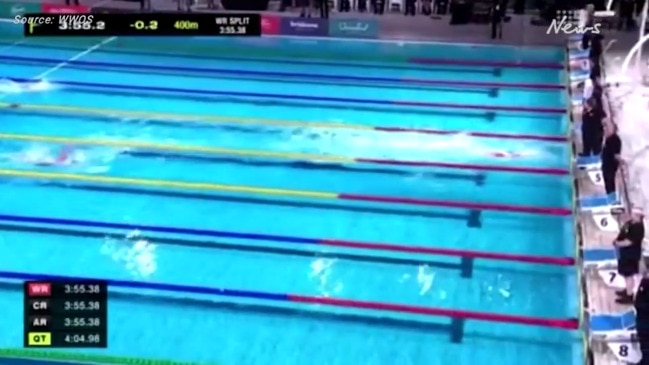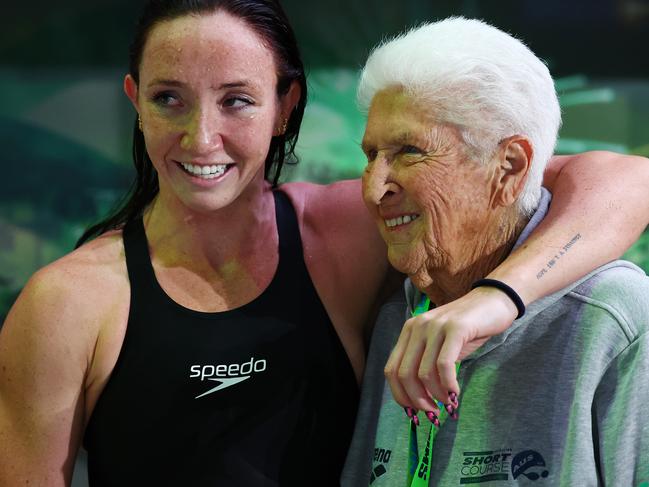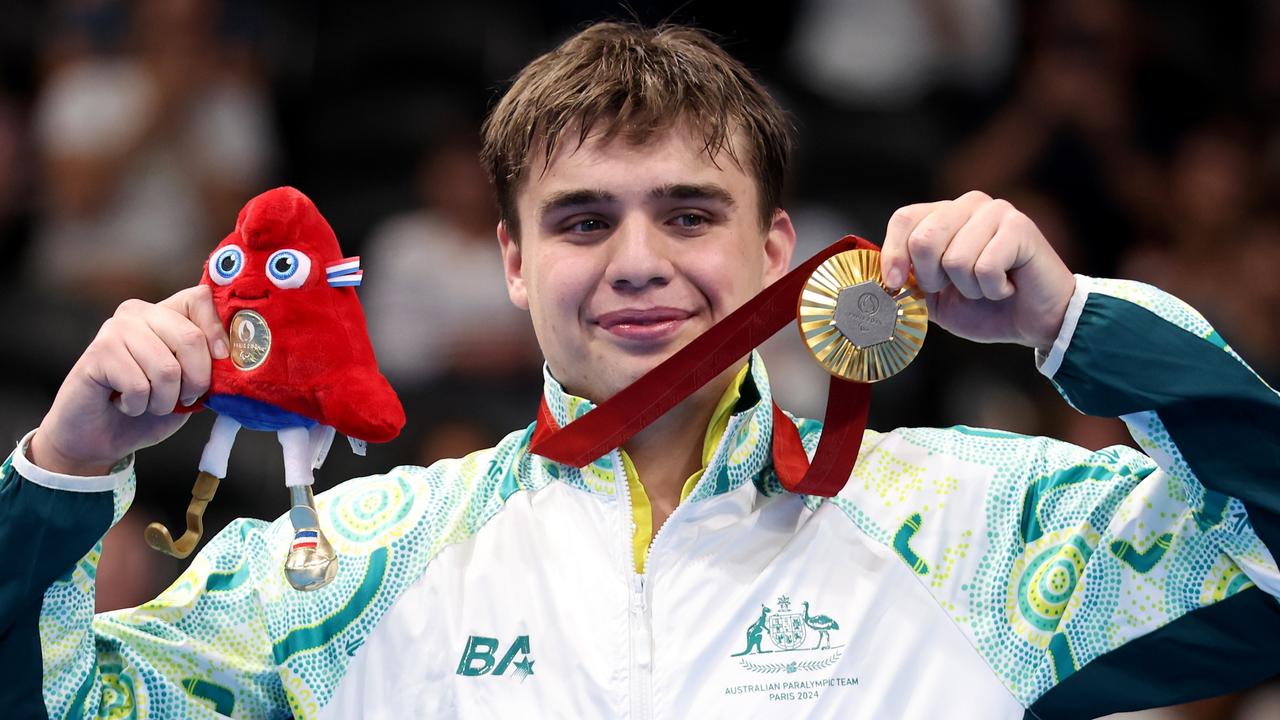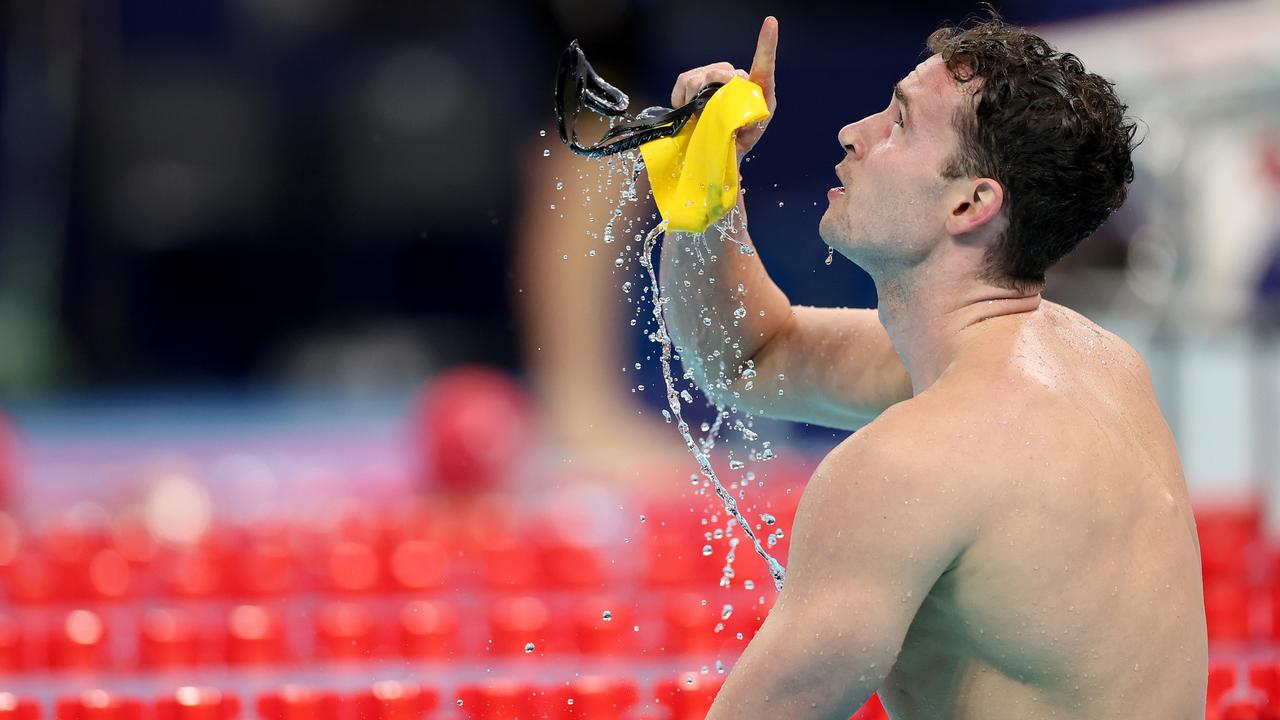Lani Pallister overcomes more than just her competitors to qualify for an Olympics which seemed beyond belief three years ago
Lani Pallister has overcome a personal battle few athletes would have to encounter to carry on her family’s legacy and qualify for the Paris Olympic Games with champion backstroker Emily Seebohm playing an influential role.

Swimming
Don't miss out on the headlines from Swimming. Followed categories will be added to My News.
From an eating disorder to Olympian. Heartbroken Tokyo outcast to second person picked for Paris. Is there any wonder Lani Pallister broke down in tears at the pure elation of completing her epic personal journey.
On a night of tears and triumphs at the opening evening of the Olympic swim trials, no story pulled at the heart strings more than the performance of Pallister to earn her first Olympic berth, emulating her mother Janelle Elford who swam at the 1988 Seoul Games.
Now a top coach, Elford watched her daughter from the pool deck, standing next to Olympic legend Dawn Fraser, who is Pallister’s godmother.
Pallister touched second in 4:02.27 behind Ariarne Titmus to secure her ticket to Paris, but it sparked an emotional flood of tears for all who knew the incredible pain and suffering the young swimmer had endured.

Surviving off just two meals and a couple of coffees per day, it wasn’t until she was a broken distraught Olympic team outcast that she finally confessed her true battle to even her own mother.
“I can’t really put it into words. When I quit swimming three years ago to where I am now ... incredible,” said Pallister.
“It is something I have spoken about every day for three years. If you had told me three years ago I would be standing here I would not believe you.
“I still can’t believe I thought having one, maybe two meals a day was going to allow me to be an athlete.
“It is such an important thing to talk about. The only reason I ended up saying something to my mum was because of Emily Seebohm.
“Having a more experienced athlete in my life that went through something similar helped. Eating disorders come with a lot of shame. You kind of know you are doing the wrong thing. It’s not a healthy coping mechanism.
“It is something you have to deal with for the rest of your life but I have a great support system around me.‘’

The enormity of the achievement was overwhelming Pallister as she stood poolside immediately after the race, her eyes scanning the pool deck to try to capture a sight of her mother.
“I don’t want to cry on camera,” she said.
“I was thinking about three years ago (Tokyo Olympic trials) all through today. I didn’t think I would be here three years ago and now I’m going to my first Olympics.
“I’m just incredibly grateful.
“I just want to try to find her (mum) to give her a hug before I started crying.
“I’m just so grateful for all they’ve done for me and I can’t wait to continue the family legacy in Paris this year.”
Support has been the biggest part of Pallister’s journey of redemption - but first had to come acceptance.
It wasn’t until Swimming Australia launched a review into the toxic culture faced by female athletes after the Tokyo Olympics that Pallister admitted to her own mother exactly what she’d done to herself in the pursuit of success.
“I thought maybe I should make a submission about the way that being told that I needed to be the same weight I was when I was 17 actually had an impact on me,” Lani told Code Insight in a raw interview last year.

“I’d never talked to my mum about it and I sent her the paragraph to proofread … and she walked out of her bedroom and was like, ‘What do you mean?’.”
As a coach, Elford knew the sacrifices required to compete at the highest level.
As a mother, she was horrified.
She had suspected all was not right and something was going awry, but as her daughter lived out of home she couldn’t quite put her finger on the problem.
“At the back of my mind, I had a feeling something was going on and I kept on saying: ‘Lani, I don’t think you’re eating enough’,“ Elford recalled last year.
“It wasn’t just that she was losing weight, you could see it with the hair, you could see it in the face, you could see it in the eyes, nails.
“I had an idea that something wasn’t right.”
While Swimming Australia should be commended for the way they’ve completely realigned their program in the wake of Pallister’s confession, she was not the only female complainant and it’s seen a big change in the entire way coaches treat young female athletes, in particular, in the pursuit of gold medals.
Body shaming and public weigh-ins have been banned, replaced by a more holistic approach to diet, nutrition and high performance sport that allows athletes to prosper without the threat of being tormented by the scales or punishment for not meeting unrealistic targets.
“This should never happen again,” Elford said.
Pallister is a success story from one of the darkest periods of Australia’s golden Olympic sport.
She is now looking forward to joining other Olympians in the tradition of inking her body with an Olympic rings tattoo knowing she is one of the lucky ones, some victims live with permanent scars no one ever sees.




